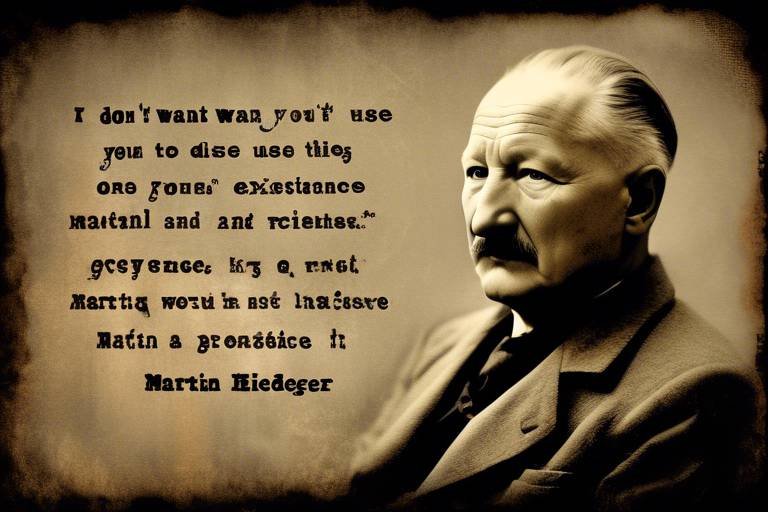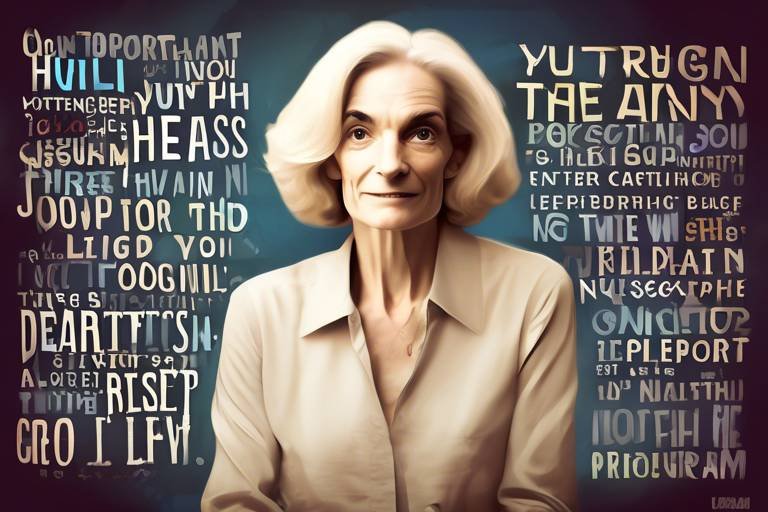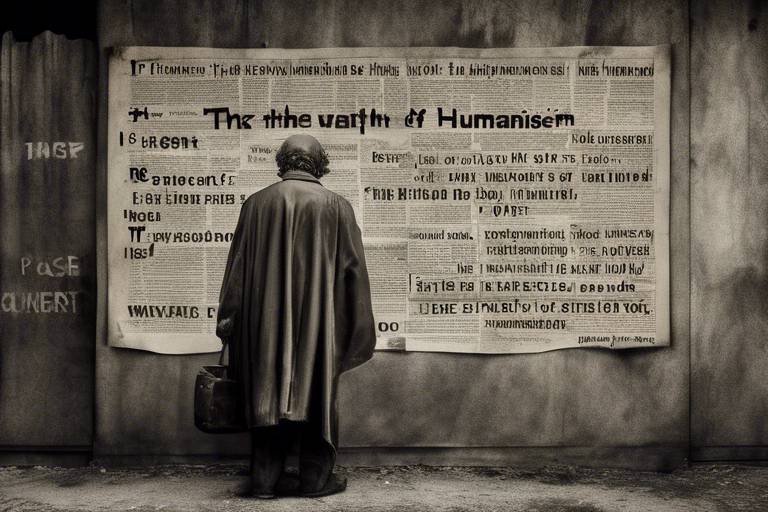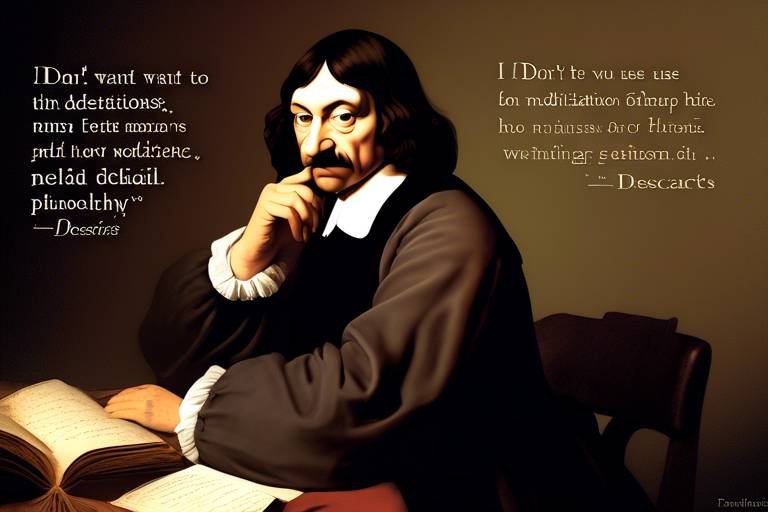Leibniz's Infinite Worlds - Understanding His Philosophy
Gottfried Wilhelm Leibniz, a name that resonates through the corridors of philosophy, introduced ideas that challenge our very understanding of existence. His thoughts on infinite worlds ignite a spark of curiosity, inviting us to ponder the vastness of reality. Imagine a universe not limited to a single narrative but bursting with endless possibilities—each one a unique thread in the grand tapestry of existence. Leibniz's philosophy encourages us to explore these threads, revealing a complex interplay between reality, perception, and the divine. As we delve into his theories, we uncover a rich landscape of thought that continues to influence modern metaphysics and our understanding of the universe.
At the heart of Leibniz's philosophy lies a profound inquiry into the nature of reality. His key principles revolve around the concepts of existence, the universe, and the intricate relationships that bind them. Leibniz challenges us to consider questions such as: What if there are multiple versions of our reality? What if every choice we make spawns a new universe? These questions set the stage for a deeper exploration of his concept of infinite worlds, where each possibility exists concurrently, waiting to be realized. By understanding his philosophical foundations, we can better appreciate the implications of his ideas on our perception of life and existence.
Leibniz's idea of infinite worlds posits that there are countless realities, each teeming with unique possibilities and outcomes. This radical notion challenges the traditional view of a singular, deterministic universe. Imagine standing at a crossroads where every choice splits into new paths, leading to different worlds, each with its own narrative. This perspective not only expands our understanding of existence but also invites us to embrace the uncertainty and richness of life. In Leibniz's universe, every potential outcome is as real as the one we experience, suggesting that our choices are part of a much larger cosmic dance.
Central to Leibniz's philosophy are monads, which he describes as the fundamental building blocks of the universe. Each monad is a unique, indivisible entity that reflects the entire universe from its own perspective. Picture a vibrant mosaic, where each tile represents a monad, contributing to the overall image while retaining its individuality. This interconnectedness is vital to understanding existence, as each monad interacts with others, creating a complex web of relationships. They are not merely passive observers; rather, each monad actively engages with the universe, shaping its reality in ways that may not always be visible.
Monads possess distinct traits that set them apart from physical substances. They are:
- Indivisible: Monads cannot be broken down into smaller components, making them the simplest units of reality.
- Immaterial: Unlike physical objects, monads do not occupy space or have mass; they exist in a realm beyond the physical.
- Internal Principles of Action: Each monad operates according to its own internal logic, guiding its perceptions and actions.
These characteristics contribute to the intricate interconnectedness of all entities in the universe, highlighting the importance of each monad's unique perspective.
Leibniz argues that monads perceive the universe in distinct ways, enriching the overall tapestry of reality through their diverse experiences. Each monad reflects a unique viewpoint, akin to a different lens through which to view the same landscape. This multiplicity of perspectives allows for a richer understanding of existence, as each monad contributes its own insights and interpretations. The interplay of these perceptions creates a dynamic and ever-evolving reality, where the sum is greater than its parts.
At the core of Leibniz's thought is the Principle of Sufficient Reason, which asserts that everything must have a reason or explanation for its existence. This principle significantly influences his arguments about the necessity of multiple worlds and the nature of reality. According to Leibniz, if there are infinite possibilities, then there must be sufficient reasons for each one to exist. This leads us to contemplate the profound implications of our choices and the interconnectedness of all things in the universe.
Incorporating the divine into his philosophical framework, Leibniz argues that God created the best of all possible worlds. This belief reflects an optimistic view of existence, suggesting that the universe is not a haphazard collection of events but rather a carefully crafted reality filled with potential. God, in Leibniz's vision, chose among infinite options, resulting in a universe that embodies rationality and goodness.
Leibniz's assertion that God selected the best possible world among infinite options highlights his optimism about creation. This perspective emphasizes that our universe, with all its complexities and challenges, is fundamentally good and rational. It invites us to reflect on our place within this grand design and consider how our actions contribute to the unfolding of reality.
Leibniz's philosophy suggests that by understanding the infinite possibilities of existence, we can cultivate a deeper appreciation for life and the choices we make. Each decision, each moment, carries the weight of potential, shaping not only our reality but also the collective experience of humanity. Embracing this perspective allows us to view life as a rich tapestry of interconnected experiences, where every thread matters.
- What are monads in Leibniz's philosophy?
Monads are the fundamental building blocks of reality, representing unique, indivisible entities that reflect the universe from their own perspectives. - How does Leibniz's idea of infinite worlds challenge traditional views?
Leibniz's concept suggests that there are countless possible realities, each with unique outcomes, contrasting with the traditional notion of a singular, deterministic universe. - What is the Principle of Sufficient Reason?
This principle posits that everything must have a reason or explanation for its existence, influencing Leibniz's arguments about the necessity of multiple worlds. - What role does God play in Leibniz's philosophy?
Leibniz integrates the divine into his framework, asserting that God created the best of all possible worlds, reflecting an optimistic view of existence.
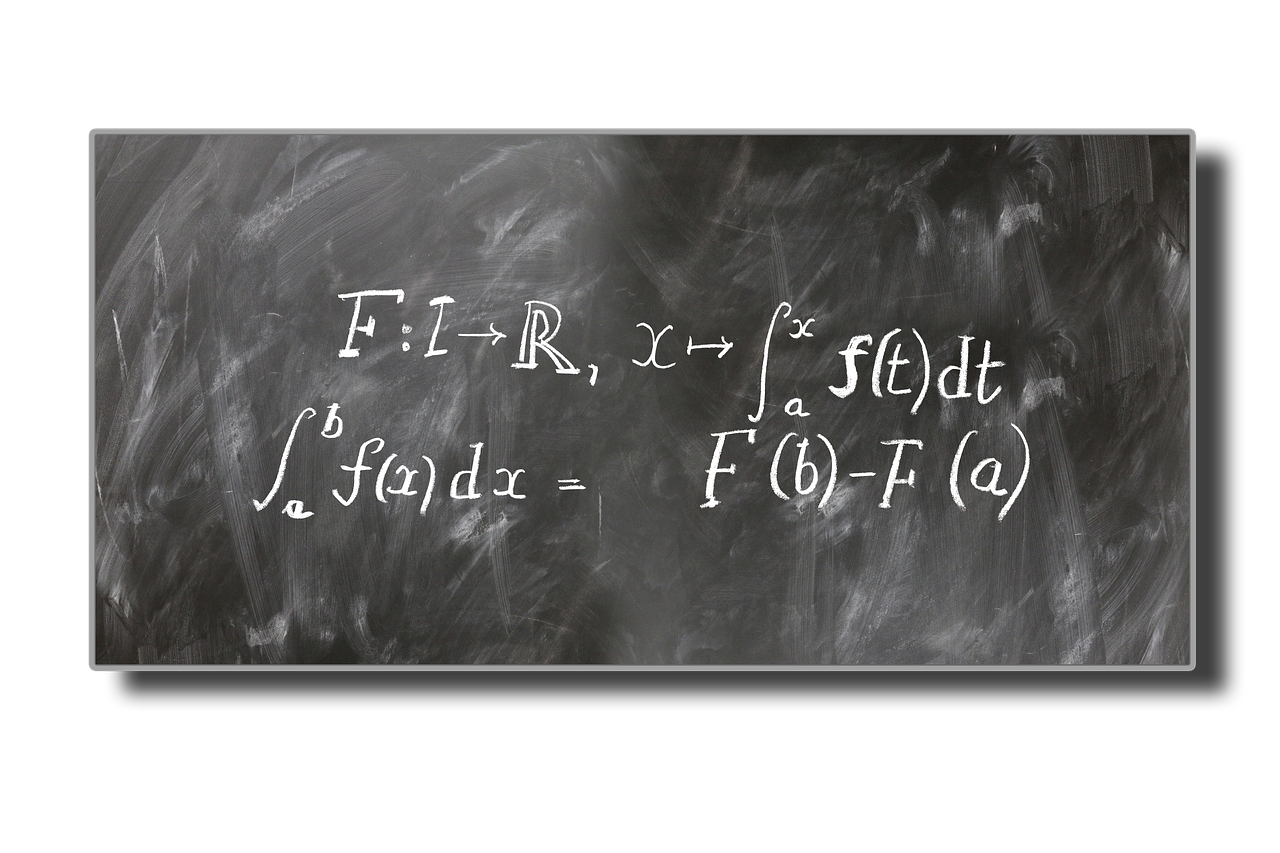
Introduction to Leibniz's Philosophy
Gottfried Wilhelm Leibniz, a towering figure in the realm of philosophy, mathematics, and science, has left an indelible mark on our understanding of existence and reality. His philosophical principles are not just abstract concepts; they challenge us to rethink our views on the universe and our place within it. At the heart of Leibniz's thought is the idea that our universe is a complex tapestry woven from countless threads of possibility. He invites us to consider the nature of existence itself, urging us to explore questions like: What does it mean to exist? How do we know what we know? And what role does God play in the grand scheme of things?
Leibniz’s philosophy is multifaceted, revolving around several key principles that include:
- The Principle of Sufficient Reason: This principle asserts that everything must have a reason or explanation for its existence, which leads to the idea that there are many possible worlds.
- Monads: These are the fundamental building blocks of reality, unique and indivisible, each reflecting the universe from its own perspective.
- The Optimism of Creation: Leibniz believed that God created the best of all possible worlds, filled with infinite possibilities.
By delving into these principles, we can begin to appreciate the profound implications of Leibniz's thoughts. His exploration of infinite worlds suggests that reality is not a singular, predetermined path but rather an expansive landscape of potentialities. This perspective not only broadens our understanding of existence but also encourages us to reflect on our choices and the myriad possibilities that life presents.
In essence, Leibniz's philosophy invites us to step outside the confines of a deterministic worldview. Instead of seeing life as a linear journey with fixed outcomes, he encourages us to embrace the idea that every moment is ripe with opportunity and potential. As we embark on this journey through his philosophical landscape, we will uncover the intricate connections between his ideas on monads, the nature of reality, and the divine role of God in the creation of the universe.

The Concept of Infinite Worlds
Imagine standing at the edge of a vast ocean, where every wave represents a different possibility, a unique reality waiting to unfold. This is the essence of Leibniz's concept of infinite worlds. He proposed that our universe is not a solitary entity but rather a part of a much larger tapestry woven with countless possible realities. Each of these realities contains its own distinct possibilities and outcomes, challenging the traditional view that we exist in a singular, deterministic universe. Instead of just one path laid out before us, Leibniz invites us to consider a multitude of paths, each leading to a different version of existence.
At the heart of this concept lies the idea that every decision, every moment, and every action can branch off into different realities. Think of it like a tree, where each branch represents a choice, and each leaf symbolizes the various outcomes stemming from that choice. In this way, Leibniz's infinite worlds offer a profound perspective on existence, suggesting that our lives are not just a series of predetermined events but rather a rich tapestry of potential experiences.
Leibniz's notion also raises intriguing questions about the nature of reality itself. If there are infinite worlds, what does that mean for our understanding of existence? Are we merely one of many possibilities, or does our reality hold a unique significance? This philosophical inquiry leads us to explore the implications of living in a universe filled with infinite potential. It encourages us to embrace the uncertainty of life and to recognize the beauty in every decision we make.
Furthermore, the idea of infinite worlds can be liberating. It allows us to think beyond the constraints of our current reality and to imagine the myriad of possibilities that lie ahead. Each choice we make can lead us down a different path, opening doors to experiences we may never have considered. This perspective not only enhances our appreciation for the present moment but also empowers us to take charge of our destinies.
As we delve deeper into Leibniz's philosophy, we begin to see how these infinite worlds intertwine with his other key concepts, such as monads and the principle of sufficient reason. Each monad, as a unique reflection of the universe, contributes to the richness of these infinite possibilities. In this way, Leibniz's infinite worlds do not exist in isolation; they are intricately connected, forming a complex web of existence that challenges our understanding of reality.
In conclusion, Leibniz's concept of infinite worlds is not just a philosophical abstraction; it is an invitation to explore the limitless potential of existence. It encourages us to embrace the complexity of life, to recognize the significance of our choices, and to appreciate the diverse realities that coexist alongside our own. As we ponder the implications of this philosophy, we may find ourselves inspired to live more fully, aware of the infinite possibilities that each moment holds.

Monads: The Building Blocks of Reality
When we dive into the fascinating world of Leibniz's philosophy, we encounter the concept of monads, which serve as the fundamental building blocks of reality. Imagine the universe as a grand tapestry, intricate and colorful, where each thread represents a unique monad. These monads are not just ordinary substances; they are the indivisible and immaterial elements that make up everything around us. Each monad is a universe unto itself, reflecting the entirety of existence from its own distinctive perspective. This notion challenges our conventional understanding of existence, suggesting that reality is far more complex than a mere collection of physical objects.
One of the most intriguing aspects of monads is their uniqueness. No two monads are identical; each one possesses its own internal principles of action and perception. This individuality leads to a rich diversity in how monads interact with one another and with the universe. Think of it like a choir, where each singer brings a unique voice to the ensemble. The harmony created by these different voices enriches the overall experience, just as the interaction of monads contributes to the complexity of reality.
To further illustrate this idea, consider the following characteristics of monads:
- Indivisible: Monads cannot be broken down into smaller components, making them the most basic units of existence.
- Immaterial: Unlike physical objects, monads do not occupy space; they exist in a realm beyond the material.
- Internal Principles: Each monad operates according to its own internal logic, determining how it perceives and interacts with the universe.
Leibniz also emphasizes that monads are in a state of perception. Each monad perceives the universe differently, reflecting its unique viewpoint. This diversity of perspectives contributes to the rich tapestry of reality. Imagine a group of friends watching the same movie; each friend experiences the film through their own lens, influenced by their personal history, emotions, and thoughts. Similarly, monads reflect various aspects of reality, creating a complex interplay of experiences that enrich our understanding of existence.
The interconnectedness of monads leads to a fascinating conclusion: while they are independent and unique, they also work together to form the universe as we know it. This relationship is akin to a puzzle where each piece, despite being distinct, is essential to completing the picture. Leibniz's vision of monads invites us to appreciate the intricate connections that bind all elements of existence, suggesting that our reality is a harmonious blend of countless individual perspectives.

Characteristics of Monads
Understanding the characteristics of monads is crucial to grasping Leibniz's philosophical framework. Monads are not just simple entities; they are the very essence of existence, each playing a unique role in the grand tapestry of the universe. First and foremost, monads are indivisible. Unlike physical objects that can be broken down into smaller parts, monads exist as whole units that cannot be divided. This characteristic emphasizes their fundamental nature, suggesting that they are the building blocks of reality itself.
Moreover, monads are immaterial. They do not occupy space in the way that physical objects do. Instead, they represent a shift in understanding reality, moving away from a purely materialistic view. Imagine a world where everything is interconnected yet distinct—this is the realm of monads, where each one is a unique perspective on the universe. Each monad reflects the entire cosmos from its own point of view, contributing to a rich and diverse understanding of existence.
Another significant trait of monads is that they possess their own internal principles of action. This means that each monad operates according to its own set of rules and motivations, independent of external influences. Think of it as a tiny universe within a universe; each monad has its own purpose and direction, yet they all harmonize to create a cohesive reality. This interconnectedness is essential, as it illustrates how individual experiences shape our understanding of the collective whole.
In addition to these characteristics, monads also exhibit a form of perception. Leibniz posits that every monad has the ability to perceive its surroundings in a unique way. This perception is not sensory in the traditional sense but rather an internal awareness of the universe's state. Each monad’s perception contributes to a richer understanding of reality, as they all reflect different aspects of existence. Thus, while they are separate entities, they collectively enhance the complexity and beauty of the universe.
To summarize, the characteristics of monads can be encapsulated as follows:
- Indivisible: Monads cannot be broken down into smaller parts.
- Immaterial: They do not occupy physical space.
- Internal Principles: Each operates based on its own rules.
- Unique Perception: Every monad perceives the universe differently.
These characteristics not only define what monads are but also illustrate their significance in Leibniz's philosophy. They challenge traditional notions of existence and encourage us to consider a more interconnected and dynamic understanding of reality.

Monads and Perception
When we dive into the concept of monads, we uncover a fascinating aspect of Leibniz's philosophy: the way these simple substances perceive the universe. Imagine each monad as a unique lens through which reality is viewed. Just like how different people can watch the same movie yet have entirely different interpretations, monads reflect the universe from their own distinct perspectives. This idea challenges the notion of a singular reality, suggesting instead that our understanding of existence is as diverse as the monads themselves.
Leibniz believed that each monad is like a tiny universe, encapsulating the entirety of existence from its own point of view. This means that every monad is not just a passive observer; it actively engages with the cosmos in a way that is uniquely its own. For instance, one monad might perceive the world as a vibrant, chaotic tapestry of colors and sounds, while another might see it as a serene, orderly arrangement of shapes and forms. This variety in perception enriches the overall experience of reality, creating a complex and intricate web of interconnected experiences.
To illustrate this concept, consider the following table that summarizes the key characteristics of monads and their perception:
| Characteristic | Description |
|---|---|
| Indivisible | Monads cannot be broken down into smaller components, making them fundamental units of reality. |
| Immaterial | They are not physical substances but rather metaphysical entities that exist beyond the material world. |
| Unique Perspectives | Each monad reflects a distinct viewpoint, contributing to the rich tapestry of existence. |
| Internal Principles | Monads operate according to their own internal laws, which guide their perceptions and actions. |
This diversity in perception leads to a fundamental interconnectedness among all monads. Just as a symphony is made richer by the varied instruments playing together, the universe becomes a more vibrant place through the unique reflections of each monad. Leibniz’s view implies that the more we understand these different perceptions, the closer we get to grasping the true nature of reality itself. It’s a reminder that our individual experiences, shaped by our backgrounds, beliefs, and emotions, play a significant role in how we interpret the world around us.
In essence, the concept of monads and their perception invites us to appreciate the beauty of diversity in our understanding of existence. It encourages us to embrace our unique viewpoints while acknowledging that others may see the world differently. This philosophical insight not only enhances our comprehension of Leibniz’s work but also encourages us to cultivate empathy and open-mindedness in our interactions with others.
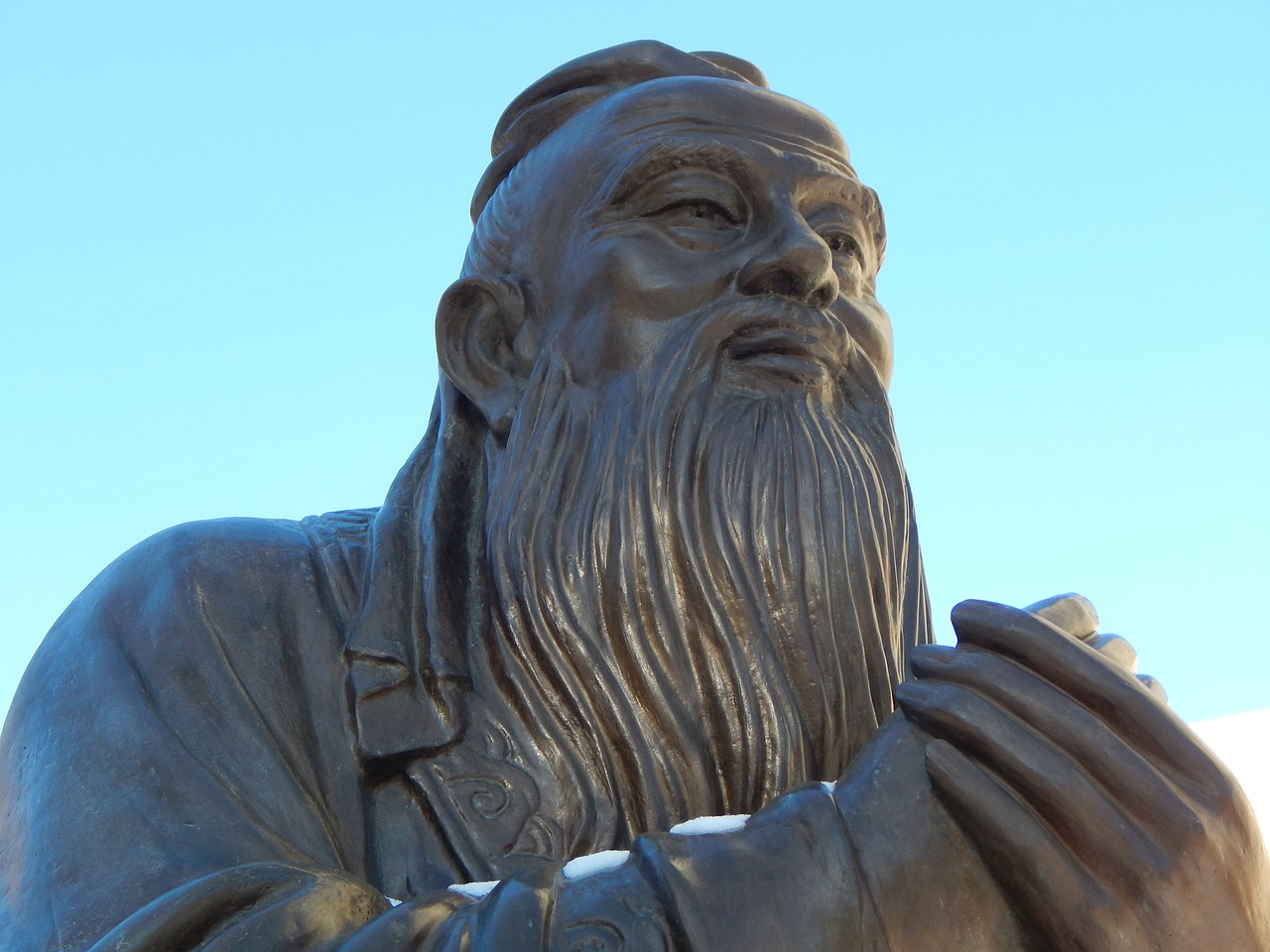
The Principle of Sufficient Reason
The Principle of Sufficient Reason is a cornerstone of Leibniz's philosophical framework, asserting that nothing happens without a reason. Imagine standing at the edge of a vast ocean, where every wave represents an event or phenomenon in the universe. Just as each wave has a cause—whether it's the wind, the moon's gravitational pull, or the earth's rotation—every occurrence in our reality must have an underlying explanation. Leibniz believed that if something exists, there must be a sufficient reason for its existence. This principle not only challenges us to seek understanding but also encourages a deeper exploration of the very fabric of reality.
Leibniz's assertion that everything must have a reason leads to profound implications about the nature of existence. He argued that this principle supports the idea of multiple possible worlds, where each world represents a different set of possibilities and outcomes. Just as a tree can branch out into countless directions, each decision we make creates a new path in the infinite landscape of existence. This perspective invites us to consider not just the world we inhabit, but the myriad of worlds that could have existed based on different choices or circumstances.
Furthermore, the Principle of Sufficient Reason implies that the universe is not a random collection of events but a coherent, rational system. This idea resonates with the notion of a structured universe, where everything is interconnected. To illustrate this, consider the following table that summarizes how the principle applies to different aspects of reality:
| Aspect | Explanation |
|---|---|
| Existence | Every entity must have a reason for being; nothing exists without justification. |
| Events | Every occurrence has a cause, whether it's natural or metaphysical. |
| Choices | Every decision leads to different outcomes, creating a web of possibilities. |
In essence, the Principle of Sufficient Reason is not merely an abstract concept; it serves as a lens through which we can examine the universe and our place within it. It encourages us to ask questions like: Why does this exist? What led to this moment? How do my choices shape my reality? By engaging with these questions, we not only deepen our understanding of Leibniz's philosophy but also cultivate a greater appreciation for the complexity and richness of our lives.
Ultimately, Leibniz's principle challenges us to recognize that our existence is not random but is part of a grand design—a tapestry woven with threads of reason and purpose. Embracing this perspective can inspire us to live more intentionally, understanding that our actions resonate within the broader context of infinite possibilities.
- What is the Principle of Sufficient Reason?
This principle states that everything must have a reason or explanation for its existence. - How does this principle relate to Leibniz's idea of multiple worlds?
It suggests that each possible world has its own reasons for existence, leading to various outcomes based on different choices. - Why is the Principle of Sufficient Reason important?
It provides a framework for understanding the interconnectedness of events and existence, encouraging deeper inquiry into the nature of reality.
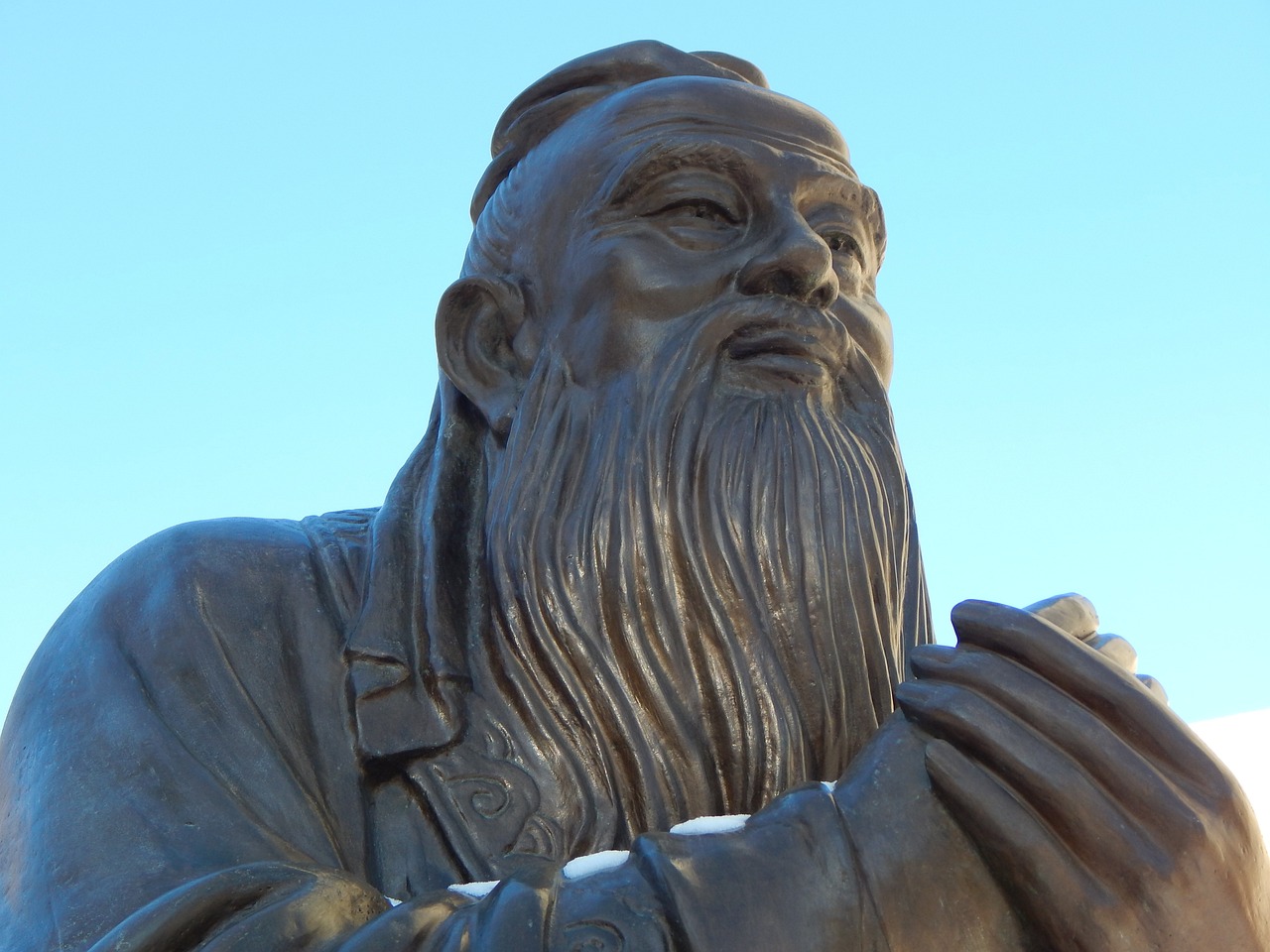
The Role of God in Leibniz's Philosophy
In the intricate tapestry of Gottfried Wilhelm Leibniz's philosophy, the role of God emerges as a pivotal thread, weaving together his ideas on existence, reality, and the cosmos. Leibniz believed that God is not just a distant creator but an active participant in the unfolding of the universe. This perspective invites us to consider how divine choice shapes our reality. Imagine a master artist standing before a vast canvas, contemplating which colors and strokes to use. In this analogy, God is that artist, choosing from infinite possibilities to create the best possible world.
Leibniz's assertion that God created the best of all possible worlds is not merely a statement of optimism; it is a profound philosophical claim. He argued that among the countless potential realities, God selected one that maximizes goodness, beauty, and harmony. This belief raises intriguing questions: What does it mean for us as humans to exist in such a world? How do our choices fit into this divine plan? Leibniz's philosophy encourages us to reflect on our place in the universe and the inherent value of our existence.
Furthermore, Leibniz posited that God's choice was guided by the principle of sufficient reason, which states that nothing happens without a reason. This principle not only underpins his metaphysical framework but also reinforces the idea that every event, no matter how trivial, has a purpose within the grand design of the universe. It suggests that our lives are not mere accidents; rather, they are part of a larger narrative crafted by divine wisdom.
In exploring the implications of God's role, we can consider several key aspects:
- Divine Optimism: Leibniz's belief in the best possible world reflects a fundamental optimism about existence. It challenges us to view life through a lens of hope and possibility.
- Interconnectedness: By choosing to create a universe filled with infinite worlds, God establishes a profound interconnectedness among all beings. Each monad, or individual entity, reflects a unique aspect of the divine plan.
- Human Responsibility: If we are part of a carefully crafted reality, then our choices hold significance. This perspective encourages us to act with intention and awareness, recognizing the impact of our decisions.
Ultimately, Leibniz's integration of God into his philosophical framework invites us to consider the divine not as an abstract concept but as a vital force shaping our reality. His ideas challenge us to explore the depths of existence, urging us to appreciate the intricate balance of freedom and determinism in our lives. As we ponder the role of God in our own experiences, we may find ourselves more attuned to the beauty and complexity of the world around us.
- What is the significance of God's role in Leibniz's philosophy?
God's role is central to Leibniz's ideas about the best possible world and the interconnectedness of all beings. - How does the principle of sufficient reason relate to God's choice?
This principle suggests that God’s choice of the best possible world is based on rationality and purpose, affirming that everything has a reason for being. - What does Leibniz mean by the best possible world?
Leibniz believes that among infinite possibilities, God chose a world that maximizes goodness and beauty, reflecting divine wisdom.

God's Choice and the Best Possible World
In the realm of philosophy, few ideas resonate as deeply as Leibniz's belief that God, in His infinite wisdom, chose the best possible world from an array of infinite realities. Imagine standing at a crossroads with countless paths stretching out before you, each leading to a different destination. This metaphor captures the essence of Leibniz's thought: God surveyed all potential worlds, each filled with unique possibilities, and selected the one that maximized goodness and harmony. This notion is not just a whimsical idea; it carries profound implications for how we understand our existence and the nature of the universe.
To grasp this concept fully, it’s essential to consider what Leibniz means by the "best possible world." This world is characterized by a delicate balance of freedom and determinism, where every event and choice contributes to a grand tapestry of existence. In this framework, every action, no matter how small, is part of a larger design that reflects God's ultimate plan. The idea that God chose the best possible world suggests that there is a purpose behind every occurrence, even those that seem chaotic or unjust. This optimism can be a source of comfort, offering a lens through which we can view our struggles and triumphs as integral parts of a greater whole.
Leibniz's philosophy invites us to ponder the nature of reality itself. If God created the best possible world, then every moment we experience, every choice we make, is imbued with significance. It challenges us to embrace the complexities of life and to recognize that our individual paths, while unique, are interconnected within the divine scheme. This perspective aligns with the idea that every person is a monad, reflecting the universe from their unique viewpoint, thus enriching the overall experience of existence.
Furthermore, Leibniz's assertion implies that the existence of evil and suffering can coexist with a benevolent God. He argues that these elements contribute to the overall goodness of the world, allowing for the development of virtues such as courage and compassion. It’s as if the universe is a grand symphony, where each note, even the dissonant ones, plays a crucial role in creating a harmonious melody. This optimistic view encourages us to seek meaning in our experiences and to understand that, despite the challenges we face, we are part of a world designed for the greater good.
In conclusion, Leibniz's idea of God's choice and the best possible world serves as a powerful reminder of the interconnectedness of all things. It challenges us to look beyond our immediate circumstances and to appreciate the intricate web of existence that binds us all. By embracing this philosophy, we can cultivate a deeper appreciation for life and the myriad possibilities that lie before us. Ultimately, it encourages us to live with purpose, knowing that our choices contribute to the unfolding story of the universe.

Implications for Human Existence
Leibniz's exploration of infinite worlds and the nature of reality carries profound implications for human existence. Imagine standing at a crossroads, each path representing a different choice, a unique reality waiting to unfold. This metaphor beautifully illustrates how Leibniz's philosophy encourages us to recognize the multitude of possibilities that life offers. Each decision we make not only shapes our immediate future but also echoes across a vast landscape of potential realities. By understanding that our existence is part of a grand tapestry woven from countless threads of possibility, we can cultivate a greater appreciation for the life we lead.
Consider the implications of the Principle of Sufficient Reason. This principle suggests that every event has a reason or explanation behind it. When applied to our lives, it means that our experiences, choices, and even our challenges are not random; they are part of a larger narrative. This perspective can empower us to confront obstacles with resilience, knowing that each struggle contributes to our personal growth and understanding. It invites us to ask questions like, "What can I learn from this situation?" or "How does this experience shape my view of the world?"
Furthermore, Leibniz's assertion that God created the best of all possible worlds implies an inherent optimism about existence. This notion can be incredibly liberating. It suggests that even in the face of adversity, there is a greater purpose at play. When we embrace this idea, we can find solace in the belief that our lives, with all their ups and downs, are part of a carefully crafted design. It encourages us to seek out the good even when circumstances seem bleak, reminding us that every moment is an opportunity for growth and understanding.
To better illustrate the impact of Leibniz's philosophy on our daily lives, consider the following table that outlines how recognizing infinite possibilities can influence various aspects of our existence:
| Aspect of Life | Traditional View | Leibnizian Perspective |
|---|---|---|
| Decision Making | Limited options lead to anxiety. | Embracing multiple possibilities fosters empowerment. |
| Challenges | Obstacles are setbacks. | Challenges are opportunities for growth. |
| Life's Purpose | Existence is random. | Life has inherent meaning and design. |
In summary, Leibniz's philosophy invites us to adopt a more expansive view of our existence. By recognizing that we are part of a universe brimming with possibilities, we can approach life with a sense of curiosity and optimism. This mindset not only enriches our personal experiences but also enhances our connections with others, as we realize that everyone is navigating their unique path through this intricate web of realities. So, the next time you find yourself at a crossroads, remember that each choice leads to a new world waiting to be explored.
Frequently Asked Questions
- What is Leibniz's concept of infinite worlds?
Leibniz proposed that there are countless possible realities, each with its own unique possibilities and outcomes. This idea challenges the traditional view of a single, deterministic universe, suggesting that multiple worlds exist simultaneously, each reflecting different aspects of reality.
- What are monads in Leibniz's philosophy?
Monads are the fundamental building blocks of reality according to Leibniz. They are simple, indivisible substances that reflect the entire universe from their unique perspective. Each monad contributes to the complexity of existence, showcasing the interconnectedness of all things.
- How do monads perceive the universe?
Each monad has its own way of perceiving the universe, reflecting a distinct viewpoint. This diversity enriches the overall tapestry of reality, as every monad's perception adds to the collective understanding of existence.
- What is the Principle of Sufficient Reason?
This principle states that everything must have a reason or explanation for its existence. It plays a crucial role in Leibniz's arguments about the necessity of multiple worlds and emphasizes that nothing happens without a cause.
- How does God fit into Leibniz's philosophy?
Leibniz incorporates God into his philosophical framework by arguing that God created the best of all possible worlds. This belief highlights the inherent goodness of creation and the rationality of the universe.
- What does Leibniz mean by the "best possible world"?
Leibniz's idea of the "best possible world" suggests that among infinite options, God chose the one that maximizes goodness and rationality. This reflects Leibniz's optimistic view of existence and the belief that our reality is the most favorable one.
- What are the implications of Leibniz's philosophy for human existence?
Leibniz's ideas encourage individuals to appreciate the infinite possibilities of existence. By understanding that each choice contributes to their unique reality, people can cultivate a deeper appreciation for life and the decisions they make.


